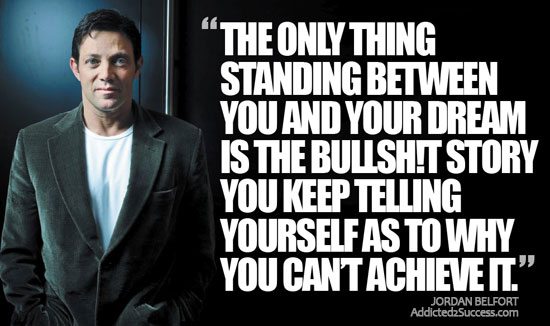Acquiring new clients can be particularly challenging in competitive B2B industries. My own company, WordStream, competes with other search engine marketing software and service vendors in an incredibly noisy space, filled with highly skilled Internet marketers. Even so, we've managed to sign up a few thousand customers in just three years. Having a solid product is a must, but beyond that, how can businesses cut through all the noise to connect with clients at scale?
These five tips will help position your business as the best choice for B2B prospects and provide them with everything they need to comfortably and eagerly come on board.
1. Display Thought Leadership
This is an incredibly effective but underutilized strategy. When clients seek out information about you and your company (and they will), it's important that what they find underscores your expertise and authority.
Writing is an effective way to demonstrate thought leadership, whether on your company blog or in industry publications. Focus on high quality, engaging content your audience will appreciate and want to share. If you aren't a fan of writing, try other forms of media like video or podcasts to create content that showcases your extensive knowledge about your industry and market. Thought leadership might also mean teaching or public speaking. Seek out opportunities to present at conferences and begin to build your reputation as a go-to person for relevant, accurate information and always make yourself available for interviews.
Use social media to amplify your content, but also to network and participate in conversations relevant to your target market. Twitter chats like #ppcchat, for example, are a great tool for budding thought leaders. Conversations are organized around a hashtag and open to anyone who wants to participate. Depending on the organizer, there may be scheduled events or simply an ongoing, open conversation. TweetReports offers a fairly comprehensive schedule of Twitter chats--see if you can find one relevant to your business.
2. Build Brand Ambassadors Inside Your Company and Out
Employees and existing clients can be fantastic brand ambassadors, helping to spread and reinforce the good word about your company.
Encourage employees to participate in social media and get comfortable with establishing thought leadership of their own. Getting your team behind the company message and involved in the industry offers a number of benefits: employees are more invested in your success, feel supported in their career development, and become a point of contact for prospects across social channels. Have clear social media policies in place and monitor all activity around your brand, whether by staff, your marketing team, or the larger community.
Social media has also opened the doors for customers and clients to become brand advocates. Remember when a client testimonial on your website was a ringing endorsement? Everyone has testimonials on their site now; you have to dig deeper. Prospects have no problem seeking out existing clients of yours and asking about their experience. Nurture your client relationships, educate them about your product or service, and encourage interactions around your brand to get maximum benefit from this existing relationship.
3. Know Your Ideal Client and Where to Find Them
If you could pick and choose your client list, who would they be? Once you've identified the people and brands you'd really love to bring on board, you can get to work discovering where they "live" online, what they're talking about, what their interests are, and other information that will help you connect.
Bringing a new client on board can be a costly investment; it typically costs five times as much to acquire a new customer than to generate new business from an existing one. You need to make sure the prospects you're drawing in deeper are the right fit for your company.
At WordStream, we assess prospects using a unique RFP process by which we examine their goals, past performance, and business model before choosing to bring them on board. We don't take on clients that are not a good fit, and you shouldn't feel pressured to, either. Focus on building a happy client base by putting the legwork into ensuring an ideal match before committing.
4. Be Real.
Embellishing or making lofty promises is a sure way to disappoint prospects. Be honest and upfront about what you offer so if it's not a good fit, neither of you waste your time. Is it really worth nurturing a lead you can't convert to a happy customer?
Being real means truth and honesty in your advertising. It means underpromising and overdelivering, rather than making commitments you won't be able to keep. It prevents negative feedback about your company by ensuring that in every case, with each new client, you've set yourself up for success.
5. Understand Your Prospect's Path to Purchase
As I said earlier, B2B purchases and onboarding can be a lengthy process. The person you are dealing with--your actual prospect--has to convince others within their company that your product or service is the best option.
Doing so requires information they can take to the table to educate themselves and their peers, then weigh it against other information they undoubtedly have from your competitors. You need to understand what type of information is going to help your prospect decide at each point in their decision-making process. Initially, they may be looking for a simple overview with highlights--but what format do they prefer? What channels are they using to seek out that information? When will they be ready to move on to more in-depth information and what is the best way for you to recognize that next step?
Map out your understanding of prospect-buying journeys by creating a number of personas representing different facets of your desired client base. This is a critical first step in better understanding your prospective clients and how to best reach and resonate with them. As you obtain more data, you can use it to build out and fine tune your personas and buying-journey maps.
The Secret to Winning New Clients
Okay, so it's not exactly a secret--a lot of business people know this, yet few manage to perfect the art of maximizing the opportunities already available to them. Winning new clients doesn't mean you have to come up with some crazy new marketing strategy; it's quite the opposite. You need to determine where you're falling down, where you're losing prospects, and close those gaps. My colleague, Perry Marshall describes this as a unique twist on the Pareto principle: 20 percent of your skills produce 80 percent of your results.
Focus on improving your existing client relationships, empowering employees to be brand ambassadors, and better understanding exactly what it takes to convert a prospect to a client. Home in on and really perfect that 20 percent of your efforts that produce 80 percent of your results. You end up with more effective marketing and a stronger overall business presence that prospects can't resist.




